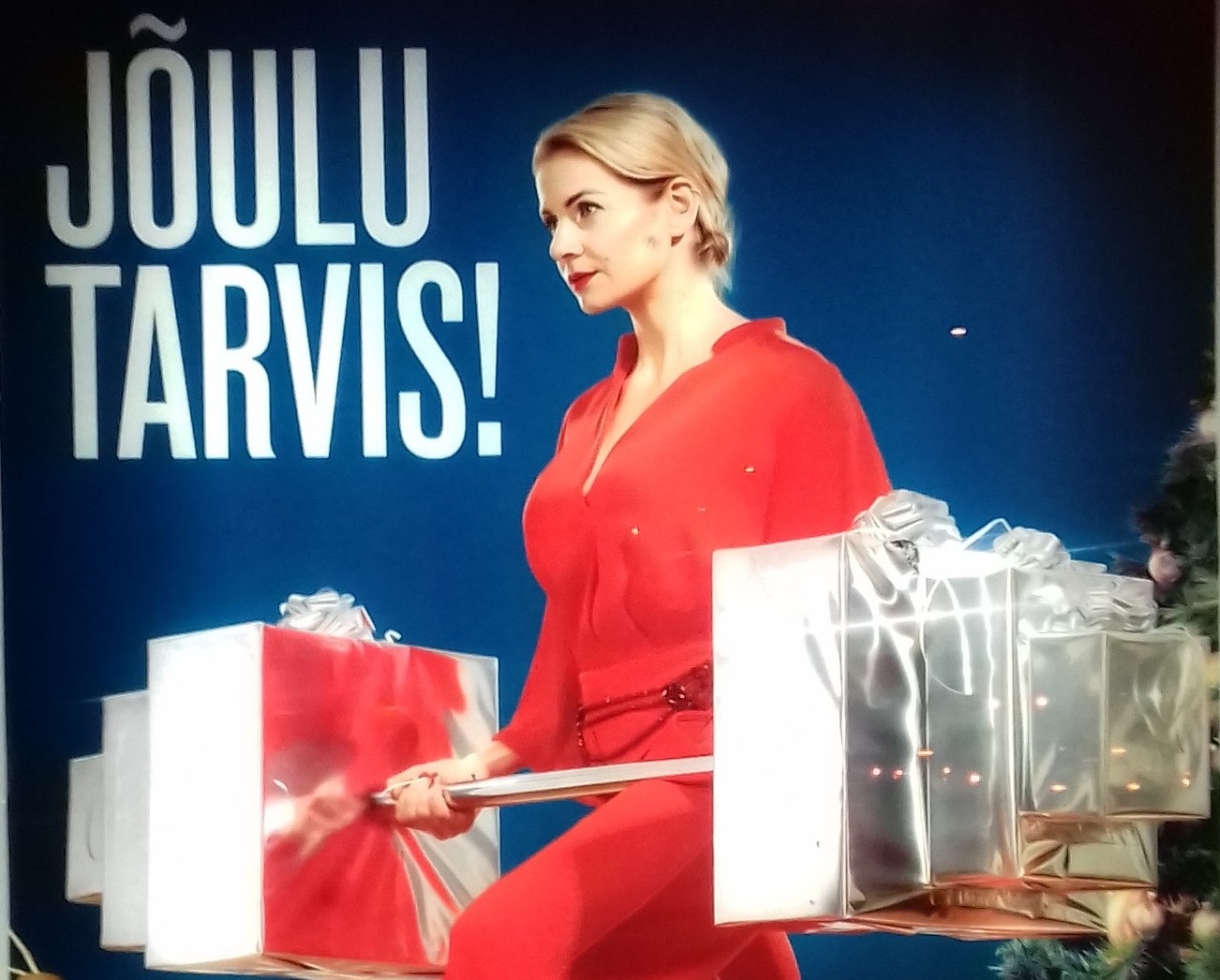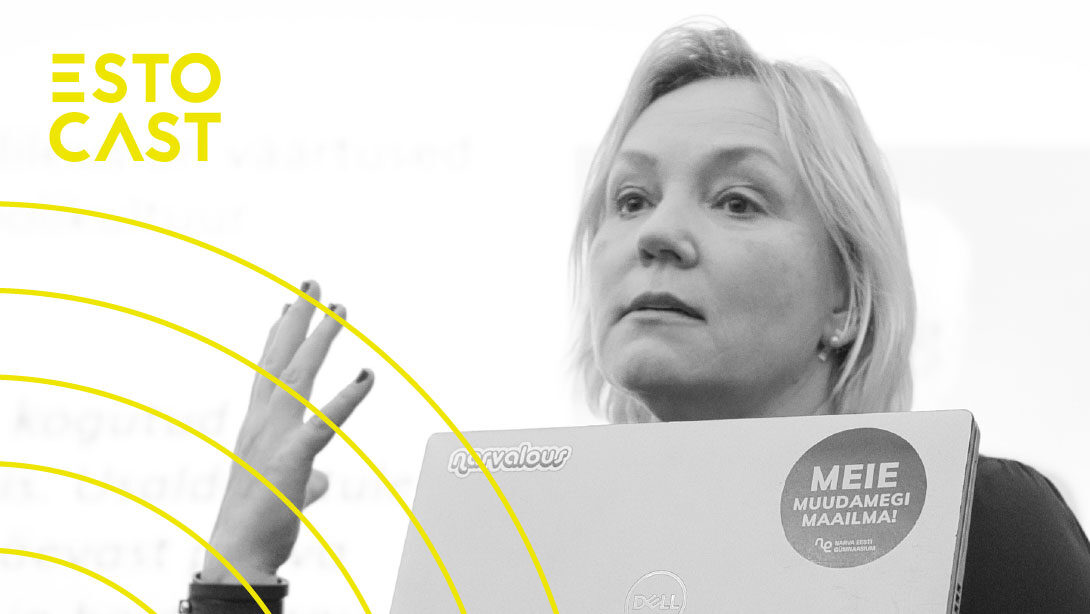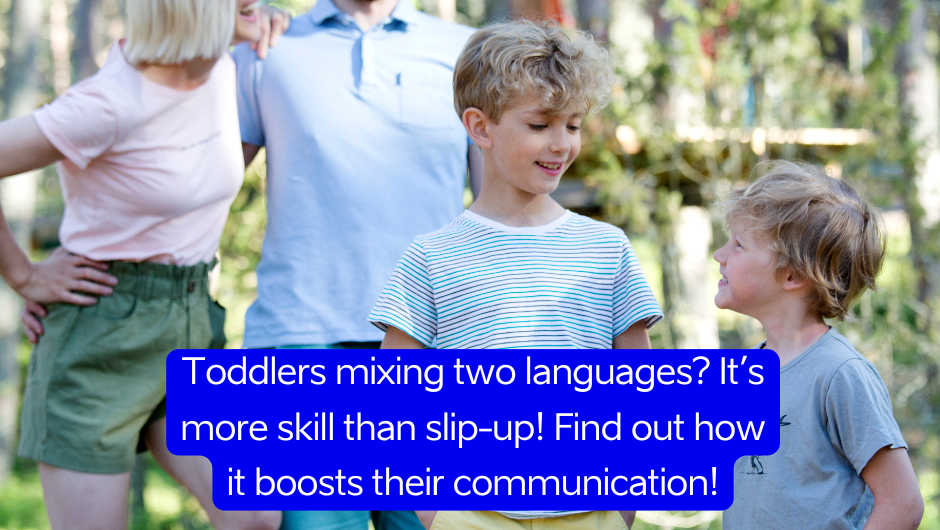For anyone who's ever gone to Jõekääru summer camp during the years of Endel Ruberg's instruction or was a skaut or gaid during the time of Heino Jõe, (and no doubt there were countless other teachers and leaders across the global Estonian diaspora who covered this), you know the answer une pealt (even when woken from a deep sleep). The person who is wished “Jõudu tööle!” (not “Au tööle“, that's a whole other basket of red õunad), replies by saying “Jõudu tarvis!” (Yes, no kidding, I do need all the strength I can get. Thanks a bunch.)
In this jõulu (Christmas; holidays are not capitalized in Estonian) ad, jõudu and jõulu have been cleverly swapped. Jõulu tarvis = you, me, we all need Christmas. Jõulud (Christmas in the nominative case) is in the plural, like the notion “holidays” and other Estonian events such as pulmad (a wedding), matused (a funeral), lihavõtted (Easter).
If you know the aforementioned traditional viisakus (politeness), you also know the other one, said to someone who is eating: “Jätku leiba“, (May there be enough bread), to which one replies: “Jätku tarvis“, (I need for it to last, thanks.) The thank-you part is inherent. When I first moved to Eesti in 1995, I noticed that people in a cafeteria setting, when they wished to sit at the same table as someone already eating, would wish them “Head isu“, (Bon appétit, literally). Seems much more sophisticated for sure, in an urban setting and so on. Be that as it may for the foodies or the breadies. Many Estonians eat rukki/leib (dark rye bread) alongside absolutely anything and everything, so the leib part of the traditional wish is always à propos, kosher and maitsekas (tasteful).
These flashy, strong women in bright red jumpsuits are all over town and probably the country, tõstes kangi (pumping iron). The biggest are on banners adorning the original flagship Tallinna Kaubamaja department store (opened in 1960), which is the source of the Christmas ad. She's on ekraanid (screens) in a frontal shot, doing a biiseps curl and on valgus/vitriinid (back lit advertising panels), including bussi/oote/paviljonid (bus shelters) lunging forward. She's holding a kang (barbell) with HEAVY silver-wrapped presents on either end as raskused / kettad (weight/bumper plates). The sport of weightlifting, in which women started competing at the Olympic level in 2000, is known simply as tõstmine (lifting) and the person competing in the event is a tõstja. Single weights or dumbbells are hantlid and a barbell is a kang, which in competition can be lifted by rebimine (snatch) or tõukamine (clean and jerk). I suspect she might be in the women's official weight category of up to 58 kg, but she's SO not wearing the proper shoes.
I just previously ended an e-post by writing: “… ja JÕULU üli/tähtsaks vastutus/rikkaks ametiks!” (… and Christmas (?!) for your very important, responsible role ahead). I meant of course, to write jõudu… – it's very often used solo, without the tööle-part, for all manner of encouragement – but since I was writing a relative who is about to begin his 51st year of playing Jõulu/vana at countless homes and events, the slip was natural. Or the ad campaign has got really worked in my case. Jõudu jõuludeks! And then you say…
Riina Kindlam, Tallinn




